The State Inspection Authority (SIA) organised an anti-corruption seminar in Bolikhamxay Province for 220 state officials on 23-24 August in Paksan District. Officials came from all districts in the province and included investigators, inspectors and monitoring officials.
Mr Bounseng Phathamavong, Vice Governor of Bolikhamxay Province, said in his opening statement that “although a lot of good work has been done in tackling corruption in recent years, there are still weak spots that need to be addressed.”
Mr Bounseng called on all sectors to strictly implement the resolutions of the 10th Party Congress in their work in preventing and combatting corruption.
The Vice Governor welcomed the support of the Institute for Legal Support and Technical Assistance (ILSTA) in lending their expertise to the seminar. ILSTA is a Luxembourgish organization specialized in capacity building in the area of good governance.
Mr Richard Philippart, President of ILSTA, noted in his opening remarks that “the higher the level of corruption, the higher the cost of business, and the more difficult it will be to bring in foreign investment, which is the cornerstone for development and modernization.”
2018 marks the 15th anniversary of the United Nations Convention Against Corruption (UNCAC), which today has 186 party members. Laos signed it in 2003 and became member on 29th of September 2009.
The UNCAC sets up a structure of review mechanisms of Laos’ implementation of UNCAC. These were reviewed in 2012 by Luxembourg and Mongolia, looking at Chapter III, criminalisation, and Chapter IV, international cooperation.
The second review cycle of Laos’ implementation of UNCAC, conducted by Cyprus and Pakistan, is looking at Chapter II, preventive measures and Chapter V, asset recovery.
Mr Thepphanthai Phanka, Deputy Head of the Dept. of Inspection and Anti-Corruption of SIA, reviewed the national anti-corruption strategy to 2020 which includes asset declaration of state officials and improving the mechanisms and management in preventing and combating corruption.
Presentations by ILSTA focused on two topics; a case study of the country of Moldova and its efforts to combat corruption, and an in-depth study on the definition of corruption and its constituent crimes, such as embezzlement, bribery, fraud, abuse of discretion and extortion, which are also set out in Laos’ 2012 Law on Anti-Corruption.

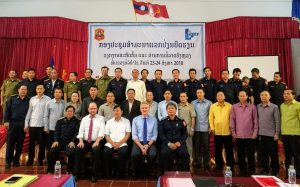
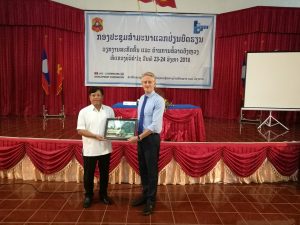
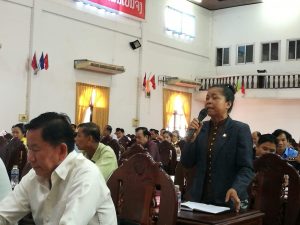
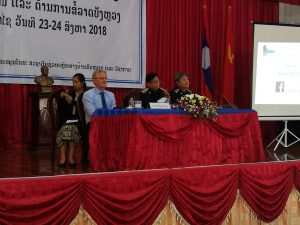
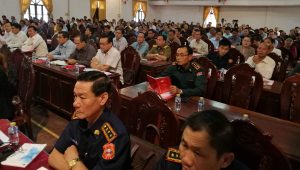
Comments are closed.